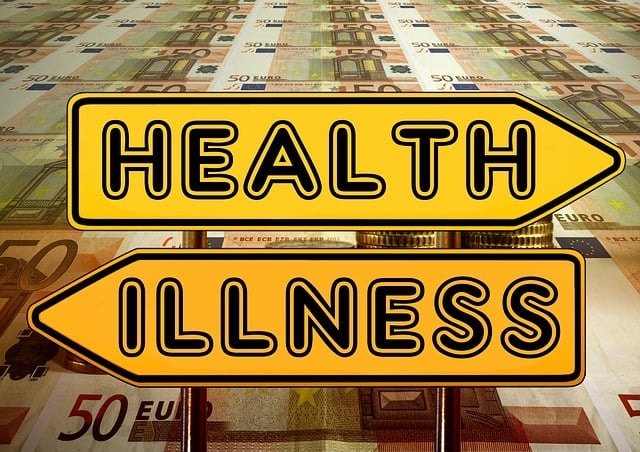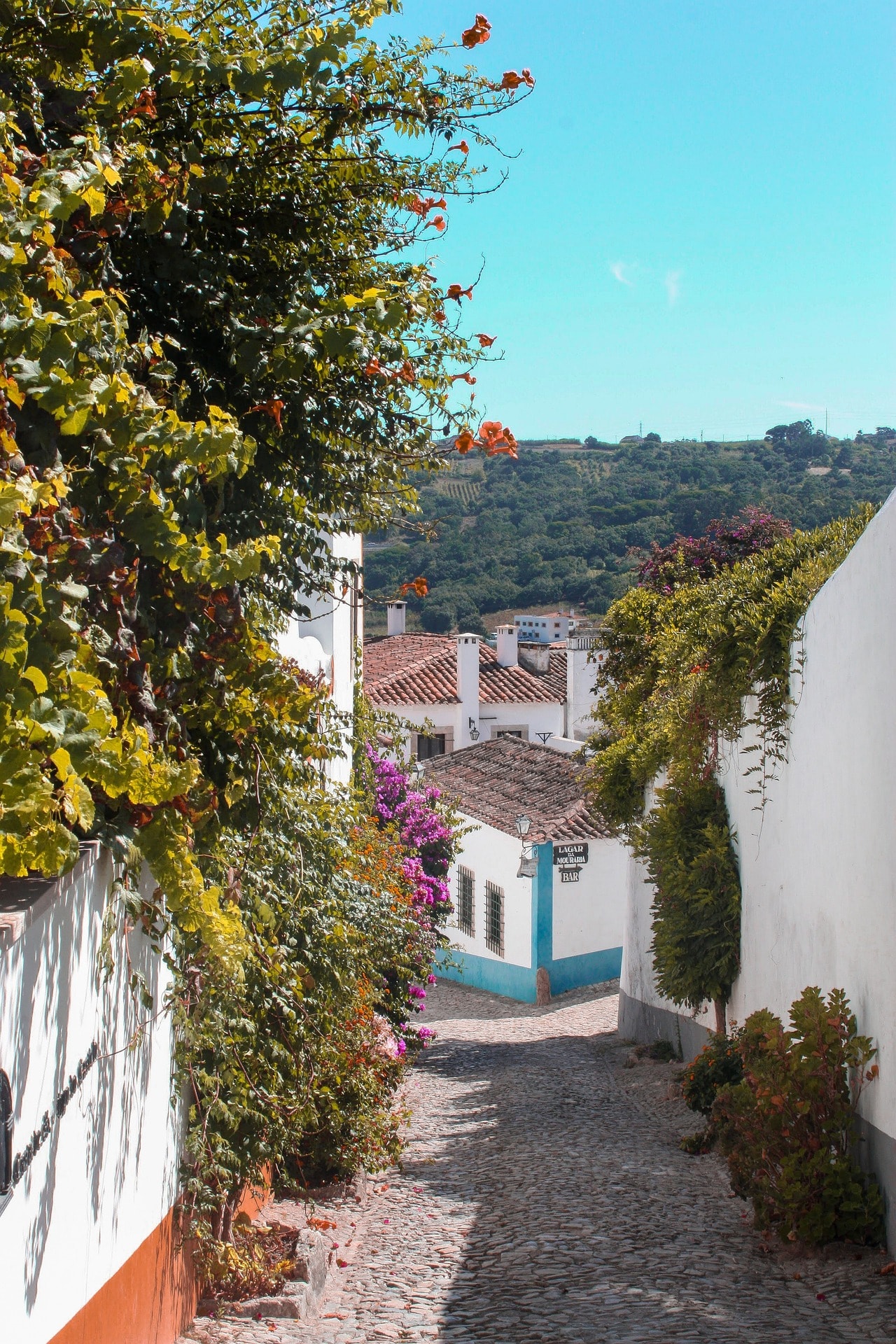Preparing for Your Move
Visa Requirements and Application Process

Check if you need a visa to move to Portugal and apply for the correct type (e.g., Temporary Stay Visa, Residency Visa, or Passive Income Visa D7)
Gather required documents, including a valid passport, proof of income, and health insurance. Ensure your health insurance is with a Portuguese company approved for residency applications
Apply for a residence permit through the Portuguese authorities or your local consulate.
Essential Documents for Moving to Portugal

You will need a passport and copies frequently.
Visa application form
Proof of outbound travel
Insurance documents, for all the family members with a Portuguese provider such as BUPA
Accommodation details, where you are staying, and a contract if renting
Proof of employment or income
Criminal record check, this should be done in conjunction with your application.
Educational certificates
Financial records
Marriage and birth certificates (if applicable)
All of the above, where required should be attested in your home country after translation at your consulate and stamped with the Apostle stamp.
Managing Your Finances
Cost of Living in Portugal

Research the cost of living in Portugal, including housing, food, and transportation costs
Expect to pay around €800-€1,200 per month for a one-bedroom apartment in Lisbon
Consider the cost of living in different regions of Portugal for example Porto is slightly cheaper, but has less employment opportunities & global transport connections. Parts of the Algarve, such as the “golden triangle” are extremely expensive.
Opening a Bank Account in Portugal
Open a Portuguese bank account to manage your finances
Visit a nearby branch and bring proof of identity, address, and employment
Consider opening a bank account with a major bank in Portugal
Taxation in Portugal

Understand Portugal’s tax system and how it affects you as a foreign resident, if you would like to book a meeting with Robin about how you can prepare & benefit from the various tax-saving opportunities please CLICK HERE
The Non Habitual Tax regime recently was closed to new residents ( Dec 2023) which had favourable taxes of passive income such as pensions and income from dividends/rental overseas. Its expected that the government will re-introduce another version of the NHR removing the pension breaks as these were seen to effect negatively the Northern European Countries due to the lower taxes on them in Portugal v the home country.
Register with the local tax office and obtain a tax number (Número de Identificação Fiscal or NIF)
Consider hiring a tax consultant to help with tax obligations
Healthcare and Insurance

Healthcare in Portugal: A Comprehensive Overview
Portugal, a country known for its rich history, stunning landscapes, and vibrant culture, also boasts a robust healthcare system that has received considerable attention for its accessibility and quality. This article aims to provide an overview of the healthcare landscape in Portugal, exploring its structure, services, challenges, and recent reforms.
Structure of the Healthcare System
Portugal boasts a universal healthcare system known as the Serviço Nacional de Saúde (SNS), which was established in 1979. The SNS is primarily funded through taxation and provides a range of services to all residents, including preventative care, hospital services, and treatment for chronic conditions. The system is designed to ensure that all citizens can access essential healthcare services regardless of their financial situation.
In addition to the public healthcare system, Portugal has a private healthcare sector that offers services for those who choose to pay out-of-pocket or have private health insurance. This dual system allows for a higher degree of choice and shorter waiting times for certain procedures and services, making it an appealing option for many.
Access to Healthcare
Access to healthcare in Portugal is generally high, with the country reporting a network of public health centers and hospitals that are strategically distributed across urban and rural areas. General practitioners serve as the first point of contact for patients, who can then be referred to specialists in both public and private facilities.
The public healthcare system also places a strong emphasis on primary care, which is crucial for preventative medicine and chronic disease management. Health centers are equipped to handle various medical needs, ranging from routine check-ups to vaccination programs.
Quality of Healthcare Services
Portugal’s healthcare quality has shown significant improvements in recent years, bolstered by investments in technology and infrastructure. Hospitals are increasingly equipped with advanced medical technologies, and healthcare professionals receive ongoing training to stay up-to-date with medical advancements.
In several international health rankings, Portugal has been recognized for its high standard of healthcare provision. The country has improved its outcomes in areas such as maternal and child health, life expectancy, and the management of chronic diseases like diabetes and heart disease.
Challenges Facing the Healthcare System
Despite its many strengths, the Portuguese healthcare system faces several challenges. One of the significant issues is the strain on public hospitals, leading to longer waiting times for elective procedures and specialist appointments.
Increased demand for services, partly due to an aging population, has exacerbated this issue.
Furthermore, rural areas often struggle with access to services due to fewer healthcare facilities and professionals, creating disparities between urban and rural health outcomes. Efforts are being made to address these inequalities through targeted initiatives to attract healthcare professionals to underserved areas.
Recent Reforms and Future Directions
In recent years, the Portuguese government has undertaken a series of reforms aimed at improving healthcare delivery. These reforms focus on increasing efficiency, enhancing patient care, and integrating services across different levels of care.
Innovations such as telemedicine have gained traction, especially in response to the COVID-19 pandemic, offering patients greater access to care and reducing the burden on healthcare facilities.
Additionally, authorities are implementing strategies to encourage preventive care, decrease hospital admissions, and promote healthy lifestyles among the population. These initiatives are critical as the nation addresses rising healthcare costs and strives to maintain a high standard of care.
Conclusion
Portugal’s healthcare system, with its blend of public and private services, offers a comprehensive framework for ensuring that citizens have access to essential medical care. While challenges remain, ongoing reforms and advancements in healthcare delivery promise to enhance the overall quality and accessibility of healthcare in the country. As Portugal continues to evolve its healthcare landscape, it remains committed to fostering a system that prioritizes the health and well-being of its population.
Research the Portuguese National Health Service (SNS) and how to access state healthcare
Understand the costs and benefits of the SNS, including small fees for consults, tests, and prescription services
Private Health Insurance Options
Research private health insurance providers in Portugal, such as Allianz and Bupa
Compare prices and coverage options to find the best plan for your needs
Consider purchasing private health insurance to supplement the SNS
Residence and Registration
Applying for a Residence Permit
Apply for a residence permit through the Portuguese authorities or via your consultant in your home country
Gather required documents, including a valid passport, proof of income, and health insurance
Register with the local authorities and obtain a registration certificate
Housing and Accommodation
Renting vs. Buying Property in Portugal

Consider renting or buying a property in Portugal, depending on your needs and budget
Research the pros and cons of each option, including costs and flexibility
Consider factors such as location, size, and condition of the property
Renting for a time is good as it gives you flexibility if you wish to move location with reduced expenses.
Finding Suitable Housing
Search for properties on local websites, such as Imovirtual and Idealista
Consider working with a real estate agent to find the best property for your needs
Research neighborhoods and local amenities, such as schools and healthcare facilities
Career Opportunities and Working Arrangements
Job Market Overview
Research the job market in Portugal, including industry trends and job openings
Consider working with a recruitment agency to find job opportunities
Research the cost of living in different regions of Portugal and how it affects your salary
Understanding Work Culture in Portugal
Research the work culture in Portugal, including expectations and customs
Understand the importance of building relationships with clients and partners
Consider taking language classes to improve your Portuguese skills
Education and Family

Education Options in Portugal
Too view a short video on “life in Portugal” when Robin Interviews Edward Harris Managing Partner & Portuguese Resident CLICK HERE
Research education options in Portugal, including public and private schools
Consider enrolling your children in an international school
Research the education system in Portugal, including curriculum and extracurricular activities
Safety and Security
Ensuring Your Safety in Portugal
Portugal is generally considered to be a safe country, with lower crime rates compared to many other European nations. The country has a relatively peaceful environment, which is one of the reasons it attracts many tourists and expatriates. Here are some key points regarding security and crime in Portugal:
Crime Rates
- Overall Safety: Portugal consistently ranks as one of the safest countries in Europe. The Global Peace Index often places it among the top peaceful countries in the world.
- Types of Crime: While violent crime is rare, petty crimes such as pickpocketing, especially in tourist areas like Lisbon, Porto, and the Algarve, are more common. Visitors are encouraged to remain vigilant about their belongings, particularly in crowded situations.
- Drug-related Crime: Portugal decriminalized the use of drugs in 2001, which has led to a decrease in drug-related crimes. The approach focuses more on treatment and harm reduction rather than punishment.
Police and Law Enforcement
- Community Policing: Portuguese police engage in community policing efforts, which helps build trust with the public and reduce crime rates. Local police forces often collaborate closely with communities to address safety concerns.
- Response Time and Efficiency: Police response times in urban areas are generally quick, and law enforcement is considered to be professional and effective.
- Emergency Services: The emergency number in Portugal is 112, which connects callers to police, fire, and medical services.
Safety Tips for Residents and Tourists
- Awareness: People are advised to be aware of their surroundings, especially in crowded places. Keeping valuables secure and out of sight can help prevent opportunistic theft.
- Travel Insurance: For tourists, having comprehensive travel insurance that covers theft and loss can provide peace of mind.
- Local Knowledge: Understanding local customs and areas to avoid, especially after dark, can enhance personal safety.
Conclusion
Overall, Portugal’s commitment to safety, coupled with its proactive approach to crime prevention and community involvement, contributes to its reputation as a secure destination. While crime does exist, it is often minor, and by taking standard precautions, both residents and visitors can enjoy a relatively safe experience in the country.
Research safety measures in place in Portugal, including emergency services and forest fire prevention
Understand the risks of pickpocketing and bag snatching in major cities
Consider purchasing travel insurance to cover unexpected medical or travel-related expenses
Culture and Integration
Immersing Yourself in Portuguese Culture
Portugal boasts a rich and diverse culture that reflects its long history, geographical variety, and the influences of various civilizations. From its traditions and cuisine to its arts and festivals, Portuguese culture is vibrant and deeply rooted in both historic and contemporary practices. Here are some key elements of Portuguese culture:
1. Traditions and Customs
Folk Traditions: Portugal is known for its regional folk traditions, which vary from one area to another. Folklore is celebrated through music, dance, and festivals, showcasing local costumes and customs.
Hospitality: The Portuguese are known for their warmth and hospitality. Sharing food and drink is an essential part of social interactions, and it’s common for friends and families to gather for meals.
2. Language
Portuguese Language: The primary language is Portuguese, a Romance language that has evolved over centuries. It is the sixth most spoken language in the world, with variations in different countries, including Brazil and Mozambique.
Literature: Portugal has a rich literary history, with notable authors such as Fernando Pessoa and José Saramago, who won the Nobel Prize in Literature. Portuguese literature often reflects the nation’s history, identity, and philosophical inquiries.
3. Cuisine
Diverse Flavors: Portuguese cuisine is known for its diversity and hearty flavors. Fresh seafood, meats, cheeses, bread, and seasonal vegetables play significant roles in traditional dishes.
- Signature Dishes: Popular foods include:Bacalhau: Salted cod prepared in various ways.
Caldo Verde: A traditional soup made with potatoes, kale, and chorizo.
Pastéis de Nata: Custard tarts known for their flaky pastry and creamy filling.
Wines: Portugal is famous for its wines, particularly Port wine from the Douro Valley and Vinho Verde from the northwest. Wine culture is integral to social events and meals.
4. Music and Dance
Fado: A unique genre of music characterized by its melancholic themes, Fado often features a solo singer accompanied by guitar. It expresses feelings of longing and nostalgia, known as “saudade.”
Traditional Dances: Each region has its traditional dances, such as Vira and Pauliteiros, showcasing vibrant costumes and rhythms.
5. Art and Architecture
Tilework (Azulejos): One of Portugal’s most distinctive artistic elements is azulejos—decorative ceramic tiles often used in the exteriors and interiors of buildings. They depict historical scenes, patterns, or landscapes.
Architecture: Portugal’s architecture reflects various historical styles, including Romanesque, Gothic, Manueline, and modernist influences. Notable structures include the Belém Tower, Jerónimos Monastery, and contemporary designs like the MAAT in Lisbon.
6. Festivals and Celebrations
Religious Festivals: Many towns celebrate religious festivals, such as the Feast of St. Anthony in Lisbon and the Feast of Our Lady of Agony in Viana do Castelo, combining religious fervor with communal festivities.
Carnival: The Carnival season includes vibrant parades, costumes, and music, particularly noticeable in regions like Madeira and the Algarve.
7. Sports and Leisure
Football (Soccer): Football is the most popular sport in Portugal, with clubs like FC Porto, SL Benfica, and Sporting CP commanding passionate followings. The national team has achieved success in international competitions, increasing national pride.
Traditional Sports: Weaving, bullfighting (in specific regions), and other traditional sports reflect aspects of Portuguese heritage.
Conclusion
Portugal’s culture is a tapestry of influences and traditions that celebrate its unique identity and history. With its welcoming people, passionate expressions in art and music, and rich culinary landscape, Portugal offers a cultural experience that is both diverse and deeply fulfilling. Whether exploring historic cities, enjoying local cuisine, or participating in vibrant festivals, immersing oneself in Portuguese culture can be a profoundly rewarding experience.
Research Portuguese culture and customs, including festivals and traditions
Consider taking language classes to improve your Portuguese skills
Join local expat groups or clubs to meet new people and integrate into the community
Logistics and Relocation
Moving Your Belongings to Portugal
Research moving companies and compare prices and services
Consider hiring a professional moving company to handle your relocation
Research customs regulations and duties on importing personal belongings
Final Checklist
Review your checklist to ensure a smooth relocation to Portugal
Consider hiring a relocation consultant to help with the process, to book a meeting with Robin CLICK HERE
Research local amenities and services, such as healthcare facilities and schools
